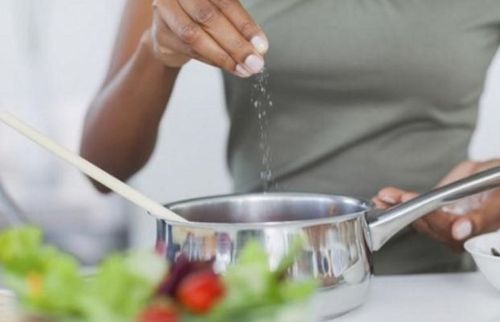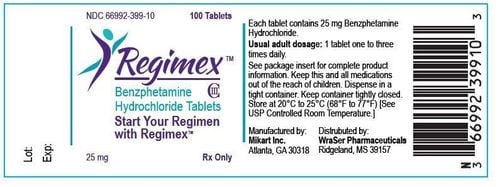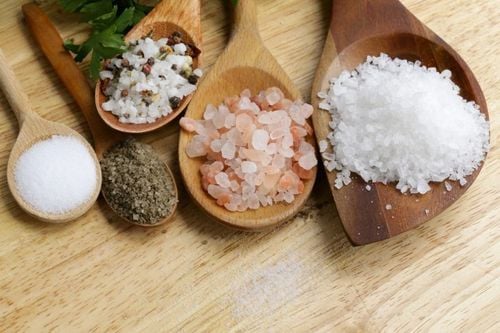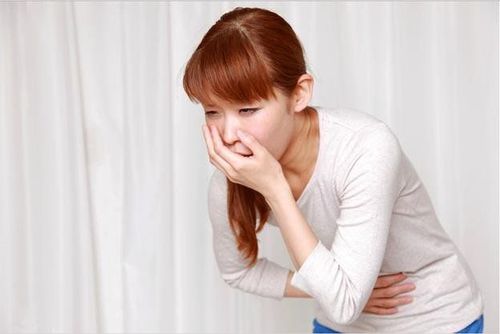This is an automatically translated article.
If you received a kidney transplant, you may be wondering if your diet is different from the one you followed before the transplant. This article will provide some additional information to help you with your post-transplant diet plan, along with advice from your doctor and dietitian.
1. Kidney transplant surgery
Kidney transplant does not mean removing the kidney and transplanting a new kidney in the same place as the patient's old one. This process will use the kidney of a healthy person or a good kidney of a person who has had brain death for a transplant.
After the process of kidney surgery and kidney transplant, in addition to complying with the treatment of the specialist, the patient needs to apply a reasonable diet to help maintain the treatment results as well as improve the patient's health and condition. .
2. Some problems about the patient's diet after kidney surgery
2.1. Diet for patients after kidney surgery After a kidney transplant, a special diet is required because diet still plays a big role in maintaining the patient's treatment outcome.
However, in the event that you are on dialysis and have a kidney transplant, you may find that the diet may be easier to follow than the diet you followed during dialysis.
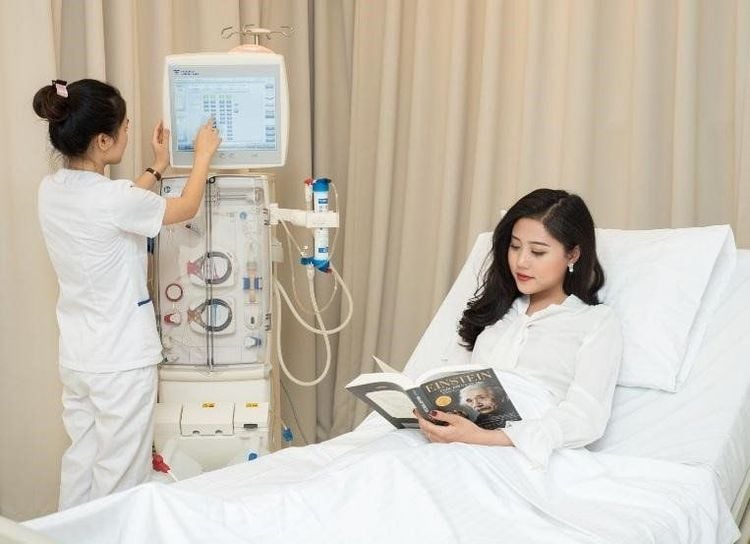
Chế độ ăn uống sau phẫu thuật là một trong những yếu tố giúp người bệnh chóng hồi phục
2.2 Do the medications used for treatment affect the diet? What to eat after kidney surgery is also a question many people are interested in. Your diet may be affected by the medications you are being used for treatment. Therefore, it is necessary to prevent the rejection of a new kidney transplant. Some common anti-rejection medications that can affect your diet include: steroids (prednisone), cyclosporine (Sandimmune, Neoral, Gengraf), tacrolimus (Prograf), azathioprine (Imuran)
mycophenolate (CellCept), Sirolimus (Rapamune)... The list of drugs that can interact with the post-renal diet will continue to grow as new drugs are developed. These drugs can change the way your body works in different ways. Some of these drugs may cause an increase in appetite, or an increase in cholesterol and triglycerides, blood sugar, potassium, and blood pressure. Some can also reduce magnesium and other minerals.
2.3. Patients may experience weight gain Many people have a better appetite after the transplant and they gain unwanted weight. However, to ensure these subjects, it is important to eat the right portion to control weight as well as control blood sugar. Limit foods that are high in calories such as fatty foods, sweets, cakes, and other foods that are high in fat or sugar. You can control your body's calorie intake by eating:
High-fiber foods, such as: green vegetables and fruits Lean meat, skinless poultry and fish Fat-free dairy products, such as: Skim milk Unsweetened beverages like water, unsweetened tea, coffee or milk Plus, the benefits of controlling your weight include a reduced risk of problems like heart disease, diabetes, and high blood pressure. If you gain unwanted weight, you will need to exercise more and follow a lower calorie diet.
2.4. Cholesterol and triglycerides The level of fats that can be cholesterol or triglycerides in your blood may be high. And this ingredient can be one of the causes leading to the risk of cardiovascular diseases. In addition, there are many things that you can do to reduce blood fat and cholesterol, such as: exercising and eating fruits and vegetables.
2.5. Carbohydrate-rich foods You should know some important facts about carbohydrate-rich foods: Carbohydrates come from sugars and starches. They provide fuel and energy to your body. When you take steroid medication, it's harder for your body to use the extra carbohydrates. This can lead to high blood sugar and possibly diabetes.
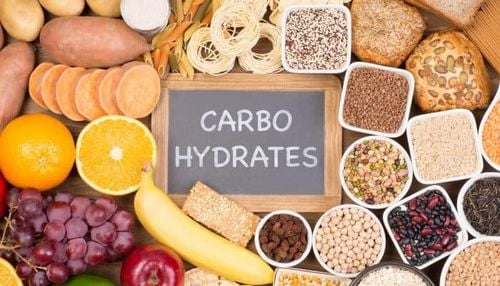
Carbohydrate là các chất dinh dưỡng đa lượng có nhiều trong thức ăn của con người
2.6. Low-salt diet Most people still need to limit salt after a transplant, although this is different for each person. Implant drugs, especially steroids, can cause your body to retain water and salt, making this problem worse, including the formation and growth of kidney stones. In addition, increased fluid in the body increases blood pressure. Controlling your blood pressure is very important to your transplant. Your doctor will help you calculate the right sodium content for your actual condition, and you should limit foods with a lot of salt, such as:
Salt Cold meats, such as ham, bacon Smoke and sausage Lunch meats, such as bacon, salami, and sausage Pre-packaged frozen dinners Ramen, pasta, potatoes and mixed rice Canned soups and pasta sauces Food pickles, such as olives, pickles and sauerkraut Snacks, such as salted chips, nuts, crackers and popcorn 2.7. Protein for people after kidney surgery Protein is important for the following reasons:
It builds and repairs muscles and tissues It helps you heal after transplant surgery Your protein intake may need to be higher normal immediately after transplantation to help build muscle tissue broken down by large doses of steroids. Then you can go back to a moderate protein intake. Examples of healthy proteins include: meat, chicken and fish, milk, yogurt and cheese, eggs, peanut butter, beans and peas
2.8. Provide potassium In the event that your transplant works well, you should be able to eat a normal amount of potassium from your food. However, some transplant drugs can increase the amount of potassium in your blood, while other drugs can decrease it. Potassium-rich foods include: oranges, bananas, tomatoes and tomato products, such as pizza sauce and pasta, potatoes, milk and yogurt
2.9 Provide calcium and phosphorus If you already have Over a period of time, your body may lack the balance of calcium and phosphorus needed for healthy bones. In the months after your transplant, your doctor will check for bone loss and advise you on the best way to keep your bones as healthy as possible. Meanwhile, each adult needs about two servings per day from the dairy group: low-fat milk, cheese and yogurt. Unless your doctor or dietitian has told you not to use these foods. Your doctor may tell you that you need more calcium, phosphorus or vitamin D in your diet and may ask you to take a supplement. You should not start taking any supplements on your own as this could cause problems with your transplant.
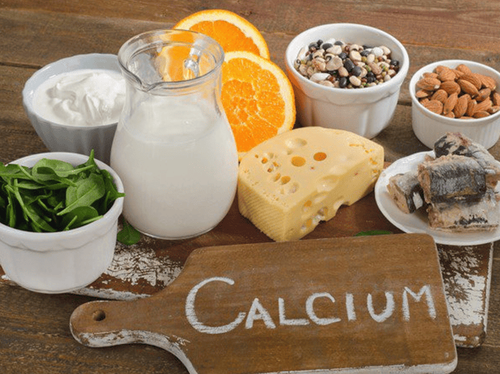
Cung cấp đầy đủ canxi và phốt pho cho cơ thể qua chế độ ăn uống và thực phẩm bổ sung
2.10. Watch your diet after a transplant Diet still plays a big role after a kidney transplant. It is important to stay at a healthy weight and exercise regularly. A healthy, balanced diet will help prevent high blood pressure, high blood sugar, excessive weight gain, and promote overall health and wellness.
After a kidney transplant, you follow your doctor's instructions to plan a diet low in salt and high in fiber. A balanced diet should include: a variety of fresh fruits and vegetables, lean meats, reduced-fat dairy products, whole grains, and plenty of water.
In addition, you may need to avoid certain foods. Because, after a kidney transplant, you'll need to take special medicines, called immunosuppressants or anti-rejection drugs. These drugs help reduce the risk of being eliminated by the body through the new kidneys. However, these drugs also weaken your body's ability to fight infections. Taking these medicines increases your risk of getting sick from germs, such as bacteria. Some germs cause bacterial infections. Some bacterial infections can be obtained from food. You can help reduce your risk of foodborne infections by:
Handle food safely, like washing your hands often, especially after touching raw chicken or eggs. Be careful when eating out. Avoid certain 'high-risk' foods as they are more likely to contain bacteria that can cause infections. Hope the above information has provided you with more options and answers to what to eat after caesarean section. Wish you always have a scientific diet and improve your work productivity and improve your life.
Please dial HOTLINE for more information or register for an appointment HERE. Download MyVinmec app to make appointments faster and to manage your bookings easily.
Reference source: kidney.org



